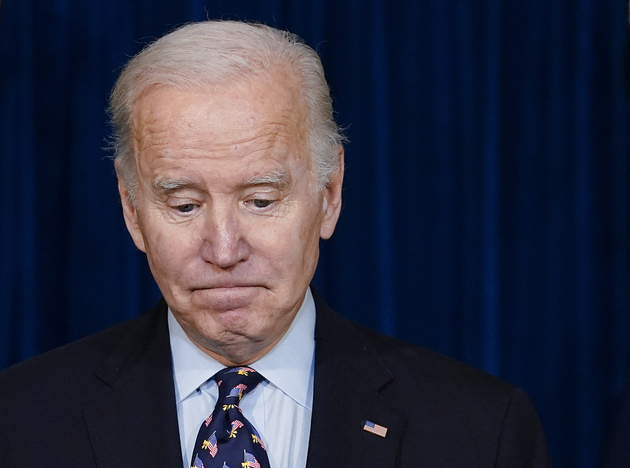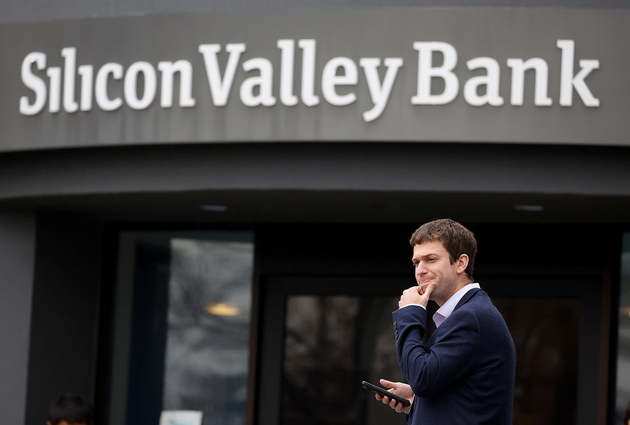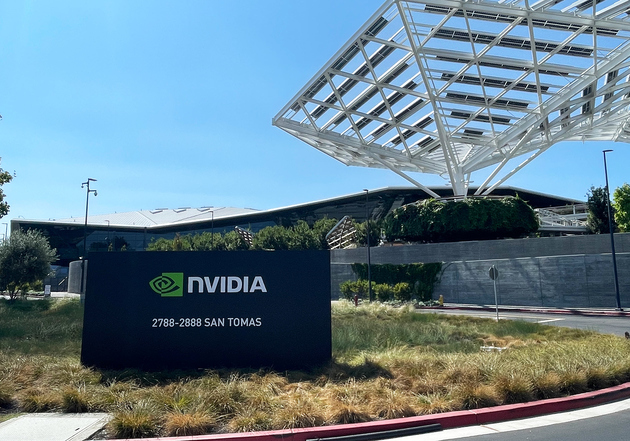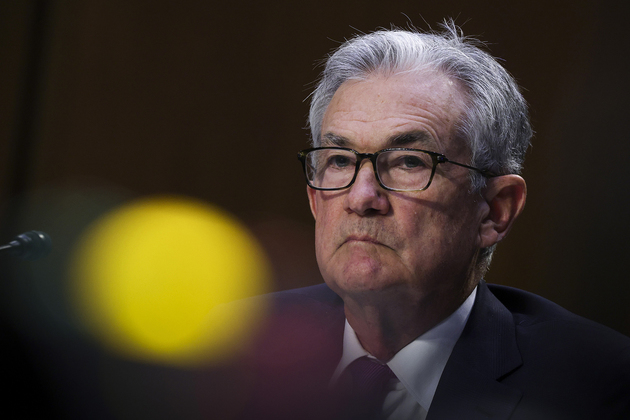2023 was a year full of challenges and changes. In this year, the global economy faced many difficulties, such as the Russia-Ukraine conflict, the Middle East geopolitical risks, and the regional bank failures in the US. 2023 was also a year full of opportunities and innovations. In this year, we witnessed the breakthroughs and applications of artificial intelligence, the competition and cooperation among the tech giants, and the exciting progress of science and technology.
This issue of “International Finance Weekly” will take you through the important events of the past 12 months, and look ahead to the future trends, so that you can better understand this complex and diverse world.
January: Biden exposed for hiding secret documents

Photo/VCG
The White House confirmed on January 9th that the lawyers of US President Biden had found several secret documents from his vice-presidential term in his private office in the fall of 2022. Biden said he was “surprised” by the matter, insisted that he was unaware of the contents of the documents, and said he would cooperate fully with the investigation. A few days later, Biden’s special legal adviser said that five more pages of documents with secret markings were found at Biden’s residence in Wilmington, Delaware.
Biden’s “document gate” came as the US Department of Justice was investigating whether former US President Trump had mishandled classified documents. After the matter was exposed, both the US Department of Justice and the House of Representatives announced that they would launch an investigation into Biden’s “document gate”.
Feb: Turkey experiences“worst disaster in more than 80 years”

Photo/VCG
On February 6th, local time, two 7.8 magnitude earthquakes occurred consecutively in the southern part of Turkey near the Syrian border.
On February 10th, the United Nations Refugee Agency said that due to the recent strong earthquakes in Turkey, the number of displaced people in Syria will increase sharply, and it is estimated that 5.3 million Syrians will be displaced after the earthquake. On February 14th, Turkish President Erdogan said that the strong earthquake had caused 35,418 deaths and 105,505 injuries in the country.
Erdogan said that this was the worst disaster in Turkey in more than 80 years. Records show that in 1939, a 7.8 magnitude earthquake occurred in Erzincan in eastern Turkey, killing about 33,000 people.
Comment: Raymond Russell, a geologist at the University of Florida, said in an interview about the cause of the earthquake that the earth’s tectonic plates continue to move slowly, and they will exert pressure on the faults between the plates. The fault that caused the first destructive earthquake in Turkey is one of the main plate boundary faults between the Anatolian microplate and the Arabian plate. This fault has historically experienced large-scale earthquakes.
March: Century-old Credit Suisse “sells”

Photo/VCG
In March, Silicon Valley Bank, one of the top 20 banks in the US, suddenly collapsed, becoming the largest bank failure since the global financial crisis in 2008. From a 60% drop in its stock price in a single day, to being shut down by the California Department of Financial Protection and Innovation, to being taken over by the Federal Deposit Insurance Corporation, it only took one day.
Panic quickly spread to the US regional banking industry and even the global banking industry. After a series of scandals and several major shareholders dumping their shares, Credit Suisse, a global investment bank, also faced a confidence crisis and plunged into turmoil. Its European stock price even hit a 24% single-day record drop, triggering global investors’ worries about the arrival of the second “Lehman moment”.
To avoid financial turmoil, the Swiss government then arranged a “forced marriage” for Credit Suisse and UBS. In the end, UBS completed the historic acquisition of Credit Suisse in June. Credit Suisse merged into UBS Group, and the combined business will operate as an integrated banking group.
Comment: The “explosion” of Silicon Valley Bank caused a huge shock to the global banking industry, and also made people worry about the stability of the financial system. Wang Rui’an, chief analyst at research firm Constellation Research, said that the market’s expectation of the Fed’s continuous interest rate hikes was the root cause of this event. Silicon Valley Bank bet that the Fed would cut interest rates, but unfortunately, it was wrong. For the Swiss banking industry, Hu Jie, a professor at the Advanced Institute of Finance at Shanghai Jiao Tong University, believes that they must find other competitive advantages.
April: ChatGPT causes security concerns

Photo/VCG
As generative AI rapidly develops, the tech world is increasingly worried about AI risks.
At the end of March, thousands of industry insiders signed a joint letter, calling for all AI labs to immediately suspend training AI systems more powerful than GPT-4, for at least six months. By April, the number of signatories to the open letter reached nearly 20,000. Italy then announced a temporary ban on ChatGPT, sparking a wave of regulation against OpenAI. Regulatory agencies in Germany, France, Ireland, Spain and other European countries also expressed similar concerns.
Regulatory measures on AI risks have been introduced one after another. In October, the White House issued its first executive order on AI; in November, at the first Global AI Safety Summit, participating countries/regions signed a milestone “Bletchley Declaration”, warning of the dangers posed by AI.
Comment: The introduction of relevant regulatory measures by various countries will have an impact on the development and application of AI. Jie Wang, a professor of computer science at the University of Massachusetts Lowell, said, “We need a more inclusive and democratic approach to AI research, so that the development and use of AI technology conforms to social values, rather than relying solely on the judgment of developers.”
May: The first royal coronation ceremony in Britain in 70 years

Photo/ VCG
On May 6th, King Charles’s coronation ceremony was held at Westminster Abbey in London. This was the first royal coronation ceremony in Britain in nearly 70 years. The last time was in June 1953, when Queen Elizabeth II was crowned.
It is estimated that the coronation ceremony cost up to 100 million pounds, which caused dissatisfaction among the British people. But for the British government, the coronation ceremony was an opportunity to showcase Britain’s diplomacy and boost the economy.
Comment: Xu Xiaohong, an expert on British issues, said that Charles’s coronation would not have any substantive impact on the British constitutional monarchy for the time being. But he did not rule out that in the long run, Britain might seriously consider abolishing the monarchy. But for now, Britain has more urgent things to do, such as restoring the economy and improving people’s livelihood.
June: A shocking 24 hours! Russia’s Wagner Group “rebellion”

Image/CCTV
In June, the world was shocked by the “armed rebellion” of the Wagner Group, a Russian private military company.
On June 24, Yevgeny Prigozhin, the head of the Wagner mercenary company, claimed that all military bases in Rostov-on-Don, a Russian military stronghold, were under the control of the Wagner Group. In response to the Wagner incident, Russian President Putin said that Russia would take decisive measures to restore order in Rostov, and that the Russian armed forces had received the necessary orders to eliminate those who organized the armed uprising. And just 24 hours later, the Russian Wagner “rebellion” came to an end.
In August, the Russian Federal Air Transport Agency released the passenger list of the crashed plane in Tver, confirming that Prigozhin and Utkin, one of the founders and commanders of the Wagner Group, were on the plane. The passenger list showed that seven passengers included almost all the senior leaders of the Wagner Group.
July: El Niño returns after seven years

Image/VCG
On July 4, the World Meteorological Organization (WMO) announced that the tropical Pacific had formed El Niño conditions for the first time in seven years. A few days later, data showed that the global average temperature broke records for two consecutive days (July 3 and July 4), and July 4 became the hottest day ever recorded globally.
Against the backdrop of global warming, the stronger the El Niño, the more obvious the increase in global average temperature. On November 30, WMO announced that 2023 was the hottest year in human history since records began.
Based on the losses caused by the El Niño phenomenon in previous years, Dartmouth College in the United States estimated that by 2029, the economic losses caused by El Niño would reach a maximum of 3 trillion US dollars. To cope with the impact of climate change, the United Arab Emirates and Germany respectively pledged to provide 100 million US dollars to the Loss and Damage Fund at the 28th Conference of the Parties to the United Nations Framework Convention on Climate Change, and the United Kingdom, Japan, and the United States also made relevant commitments.
Comment: Mark Serrez, director of the US National Snow and Ice Data Center, pointed out that significantly reducing greenhouse gas emissions is the direction for all mankind to move forward, and it is also a feasible direction. Although the global economy is based on fossil fuels, changing the energy economy, lifestyle, and moving away from oil fields will be very difficult, but humans must act as soon as possible.
August: NVIDIA becomes biggest winner of the AI wave

Image/Zheng Yuhang (NBD)
As the generative AI boom sweeps the world, chip sales soar, and NVIDIA emerges as one of the biggest winners. NVIDIA’s revenue increased by 101% and 206% year-on-year in the second and third quarters of this year, respectively, while its net profit increased by 843% and 588% year-on-year, respectively.
Since the beginning of the year, NVIDIA’s stock has surged by 239%, making it one of the best-performing stocks in the S&P 500 index this year. NVIDIA expects that the high demand for GPUs will last at least until next year, and says it has secured increased supply to boost chip availability in the coming months.
Comment: Although analysts expect that tech giants' self-developed AI chips may take away some of NVIDIA's market share by 2024, they also say that NVIDIA's products will continue to be favored for their versatility and high performance, depending on the application.
September: Birmingham, the second largest city in the UK, goes bankrupt

Image/ Birmingham City Council website
On September 5, the local government of Birmingham, the second largest city in the UK, entered a state of de facto bankruptcy. The direct cause of Birmingham’s financial troubles can be traced back to a “equal pay for equal work” claim more than a decade ago, which left the city unable to repay its debt of 760 million pounds.
Birmingham is the seventh local government in the UK to declare substantial bankruptcy since 2020, including Thurrock, Croydon, Slough and Northamptonshire. The situation of local governments going bankrupt one after another also reflects the risks faced by the UK economy due to high inflation, high debt and high interest rates.
Comment: This incident reflects the financial difficulties of the UK local governments, as well as the risks of the UK economy. Jonathan Werran, CEO of Localis, a UK non-profit think tank, said that the UK local governments have not fully recovered from the COVID-19 pandemic, and the sharp reduction of central government grants due to fiscal austerity has left them unable to balance their income and expenditure.
October: Global bond yields hit 16-year high

Image/VCG
In October, the global bond market sell-off intensified, pushing the 10-year US Treasury yield above the key psychological level of 5%, the highest since the global financial crisis of 2007. It was not only US bonds, but also the benchmark government bond yields of other major developed economies that reached multi-year highs.
The last time US bond yields reached such levels was during the global financial crisis of 2007-2008. As of December 29, the 10-year US Treasury yield was 3.886%.
The International Monetary Fund said, “US Treasuries are the basis for pricing fixed income markets, affecting almost any security in the world. Wall Street was also uneasy about this, with JPMorgan even warning that it was “similar to before 2008”.
Comment: The surge in US bond yields could have far-reaching implications for global asset pricing and investment strategies, potentially leading to a shift and redistribution of global funds, which would pose challenges for the financing costs and financial stability of emerging markets.
November: GPT-4 major update

Image/VCG
On November 6, OpenAI held its first-ever developer conference, which attracted much attention. The company not only launched GPT Store, which allows users to create their own GPT, but also released a more powerful GPT-4 update version, GPT-4 Turbo, at a discounted price.
But just over ten days later, OpenAI CEO Altman was suddenly ousted by the board of directors, which stunned the tech world. However, after several twists and turns, Altman returned to OpenAI. The company’s board of directors was also restructured, and the initial members of the new board were only three. Three of the four board members who made the dismissal decision were out, including chief scientist Ilya Sutskever, while former US Treasury Secretary Larry Summers and former Salesforce co-CEO Bret Taylor were added as new directors.
However, the most crucial part of this global event, namely why Altman was fired, remains unanswered.
Comment: The technological progress and business competition in the AI field are eye-catching. OpenAI’s GPT-4 is a powerful natural language generation model, but it also poses potential ethical and safety issues. OpenAI’s internal strife also reflects the competition and conflicts of interest in the AI field. This has some implications for the development of AI and its impact on society.
December: Powell delivers“Christmas gift”

Image/VCG
On December 13 local time, the Federal Open Market Committee kept the federal funds rate unchanged at 5.25%-5.5% for the third consecutive time. The “dot plot” that the market paid most attention to showed that the officials had a clear dovish turn in their expectations. Of the 19 officials who provided interest rate forecasts, 16 expected the rate to fall below 5.0% next year, and 11 expected at least three rate cuts next year.
Fed Chairman Powell explicitly stated that the Fed was nearing the end of its rate hike cycle and that discussions on rate cuts had begun. After Powell’s remarks were published, the Dow Jones Industrial Average hit a record high during the day.
The top Wall Street investment banks have advanced their expectations for the Fed’s first rate cut. According to Goldman Sachs’ latest forecast, the Fed will cut rates by 25 basis points three times in a row in March, May and June 2024.
Comment: The Fed’s dovish turn means that the US economy may face the risk of slowing down, and it will also affect the monetary policies and exchange rates of other countries.
Disclaimer: The content and data of this article are for reference only and do not constitute investment advice. Verify before using.


 川公网安备 51019002001991号
川公网安备 51019002001991号





